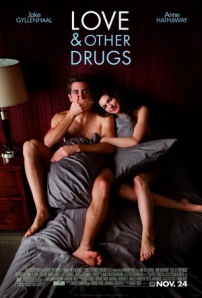When I sat down at the computer this morning, my google reader list was one of the first things I went to look at. As a result, I started my day with this excellent post by @DrSnit over at Dear Thyroid: Chronic Snarkopolist: Blaming the Patient I suggest everyone go and read that post not only because my response below will make much more sense that way, but also because it’s an excellent piece. I started writing a comment in response, but it got so long that I figured I might as well just write a blog post.
—
Being told it’s our own fault (either directly or indirectly by way of phrases like “denied using” or “failed treatment” as mentioned in the article) sets us up for the wrong attitude. It makes us scared to get the help we need from doctors or the support we need from family/friends. Who wants to be told over and over again that they are to blame, that they are wrong, that they have failed? By engaging in behaviors that make their patients scared to visit them, let alone be honest about their life (habits, symptoms, pain levels, mood) doctors have already failed their patients before they even start treatment. They have failed to create an environment where we feel safe enough to be honest and destroyed the doctor-patient relationship. Of course, without that information they can never treat us whether it’s treatable or not. I realize that we live in a world where malpractice reins as king over the risks doctors face. How many times have you overheard the phrase “I don’t want to get sued for killing someone?” come out of a doctor’s mouth? Shouldn’t “I don’t want to kill someone.” be the worst that could happen? But I digress.
There are obviously some people who may have ended up with illnesses because of their bad decisions. Ok, fine. Let’s move on shall we? Focusing only on wrongs instead of on how to make things right as best we can moving forward is pointless. Who is that practice benefiting? Certainly not the patient. Certainly not the doctor. Nobody is perfect, but we are doing our best.
Doctors like to hide behind the fact that this is how they were trained to report information. Does that alone make it the right thing to do? I think not, but that’s just me and just me thinking isn’t enough. This is a change that needs to come from the inside. Something that doctors need to start looking at very carefully. Instead of brushing us off as whiny patients who, since we don’t have their level of education on the topic, clearly know less about it than they do. News flash: many times I’ve had doctors prescribe incorrect meds or order incorrect tests. As it turns out, when you have an illness that doctors don’t see every day doctors don’t always remember everything they learned 10-20 years ago in medical school & residency.
I think one of the things that I have found most frustrating about patient blame is that it comes from loved ones too. It isn’t only the doctors that have bought into this denial and blame game. My mother is always crying about how I’m still sick because I’ve accepted that my illnesses are chronic. By agreeing that they’re chronic, she says, I’ve decided I’m never going to get better. According to her, it’s MY fault that I’m not getting better because I don’t want it badly enough.
A friend once informed me that my life as a chronically ill person seemed like a soap opera. “Lifestyles of the Ill and the Blameless” we joked. She couldn’t figure out why there is so much drama going on all the time. Why must I switch doctors, can’t I just insist that they look into a symptom I’m worried about? Why must I switch doctors, can’t I just repeat myself until they listen? Why must I switch doctors, can’t I just put up with a ‘little’ condescension? If I know I’m doing the best I can then why should it matter if the doctor doesn’t think so? Why does it need to be such a big deal?? I told her the only thing I could: because it IS a big deal! It’s a HUGE deal! Blaming the patient for their illness, for the meds not working, for not being a obedient robot is ridiculous. There are some truly FANTASTIC doctors out there who listen to their patients and work with them to create helpful, supportive care plans. They broke away from the mold of traditional patient blame approaches and learned to work with their patients instead – isn’t it time more doctors started to think about doing the same?
Filed under: "...said WHAT?", insensitivity/ignorance, rant | 3 Comments »




